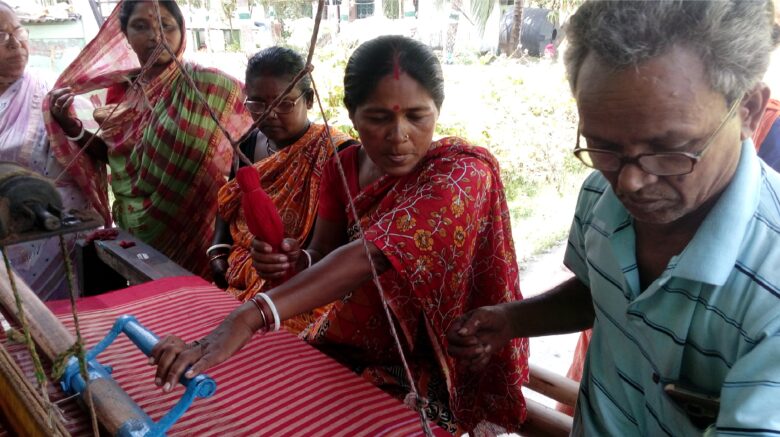A large number people in West Bengal are living in villages. The living condition is below acceptable for most of them. They are not able to sustain their basic human needs. Additional incomes lead to better opportunities.
We believe that providing stable livelihood is the most important component of any sustainable developmental model. So we have engaged in the development of the livelihood of rural and tribal people.
We have seen that 85% of total population in India is working at agricultural fields and animal husbandry. The problem is most of them are ambushed by the moneylenders and land lenders. Our projects are helping them to become economically independent members in the society.
Our action plan:
- Conduct research and survey to determine the prime livelihood segments of the project area.
- Create and reinforce existing Self Help Groups (SHG) for the communities to find its own solutions to the social and economic problems.
- Assist SHGs to identify different opportunities and limitations for the preferred livelihood sections.
- Foster SHGs’ prime skills and habits like Agriculture, Horticulture, Fish Harvesting, Poultry, etc. by providing skill development training for capacity building and enterprise development; production consultancy support to generate and maximize quality products; and direct market linkage to sell their products. Through workshops the SHG:
- Identify the market, natural customer base, natural resources.
- Learn to raise and improve production quantity and quality of agricultural goods and animal farming.
- Provide marketing training for goods produced by the community.
Project: Upturn the rural livelihoods through farming
Location: Hooghly District; West Bengal; India
Target Population: Rural and Marginalized People
Project: Women empowerment through micro enterprises
Location: West Medinipur and Hooghly District; West Bengal; India
Target Population: Rural and Marginalized Women
A large number people in West Bengal are living in villages. The living condition is below acceptable for most of them. They are not able to sustain their basic human needs. Additional incomes lead to better opportunities.
We believe that providing stable livelihood is the most important component of any sustainable developmental model. So we have engaged in the development of the livelihood of rural and tribal people.
We have seen that 85% of total population in India is working at agricultural fields and animal husbandry. The problem is most of them are ambushed by the moneylenders and land lenders. Our projects are helping them to become economically independent members in the society.
Our action plan:
- Conduct research and survey to determine the prime livelihood segments of the project area.
- Create and reinforce existing Self Help Groups (SHG) for the communities to find its own solutions to the social and economic problems.
- Assist SHGs to identify different opportunities and limitations for the preferred livelihood sections.
- Foster SHGs’ prime skills and habits like Agriculture, Horticulture, Fish Harvesting, Poultry, etc. by providing skill development training for capacity building and enterprise development; production consultancy support to generate and maximize quality products; and direct market linkage to sell their products. Through workshops the SHG:
- Identify the market, natural customer base, natural resources.
- Learn to raise and improve production quantity and quality of agricultural goods and animal farming.
- Provide marketing training for goods produced by the community.
Project: Upturn the rural livelihoods through farming
Location: Hooghly District; West Bengal; India
Target Population: Rural and Marginalized People
Project: Women empowerment through micro enterprises
Location: West Medinipur and Hooghly District; West Bengal; India
Target Population: Rural and Marginalized Women
By following these steps we can produce our beneficiaries from our different projects

